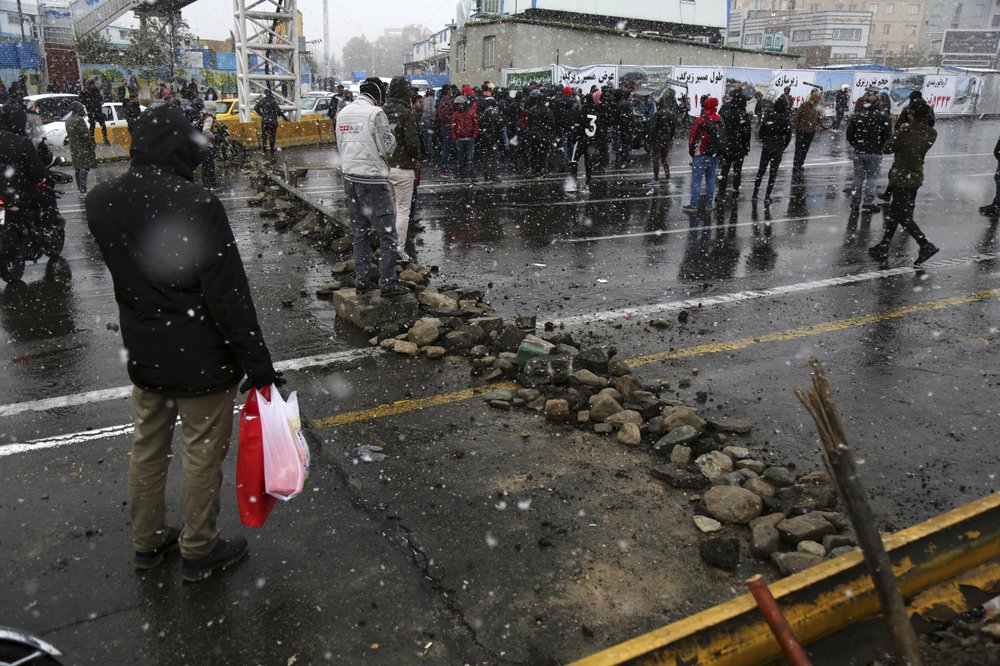The entire country of Iran, which has a population of just over 80 million people, is currently cut off from the internet after violent clashes between authorities and protesters.

On Saturday the government enforced an internet blackout, a move that Bessma Momani, a professor of Political Science at the University of Waterloo, said is both unprecedented and remarkable given the length, scale and magnitude.
The internet has never faced anything like this. Most recently, India blocked internet access in Indian-controlled Kashmir for more than 100 days.
In 2011, Egypt cut off internet access entirely for several hours. Myanmar also did so in 2007.
“The internet is the lifeline for many Iranians,” said Momani.
It’s a means for them to express themselves when they can’t do so in the public space under an authoritarian regime, she explained.
She added that the merchant class relies on the internet for transactions after U.S. sanctions were reinstated on the country, and that the blackout could seriously financially hurt Iran’s middle class.
Momani said the blackout matters, not just for Iranians, but for people all over the world.

That’s a reality for many Iranian-Canadians, like Coquitlam resident Lia Fallah, who has had a difficult time reaching family in Iran, leaving her anxious and in the dark as to how the situation is unfolding.
“Every moment there is so many new things happening and it takes so much longer for it to reach us,” said Fallah. “This is affecting people in Iran and outside of Iran.”
Most Iranians use tools like WhatsApp to stay in touch with family, as contacting people via a landline is both expensive and challenging.

But it also a means Iranians can’t send out updates on the current turmoil, nor can those in the diaspora and beyond receive it.
Fallah says it’s now hard to get a clear image of what’s happening.
Many have taken to social media advocating for the ban to be lifted with the hashtag #InternetForIran.
Amnesty International said it received reports that over a 100 protesters in 21 cities have died.
The protests erupted on Friday after the government announced the price of fuel would be increased by 50 per cent.
- Joffre Lakes to close for 3 periods this year under agreement with First Nations
- ‘Why aren’t we doing more?’ White Rock on edge with killer on the loose
- B.C. carjacking victim says she doesn’t trust the ‘catch-and-release’ system
- Inquest into fatal Surrey hostage-taking recommends cameras for ERT teams
That, according to Momani, was on top of a number of other frustrations.
“The Iranian economy is hurting,” she said.
“When the government goes after people’s pocketbooks, in this case fuel which is a very essential part of Iranian life for many Iranians, they took to the streets.”
The decision to increase the price of fuel was met with widespread anger.
The economy is reeling after U.S. President Donald Trump abandoned a nuclear deal with Iran and reinstated sanctions.
The move led to the collapse of Iran’s oil exports and saw the value of the Iranian rial to plummet, causing prices of basic, essential goods to soar.
That, coupled with a ban on communicating via the internet, Momani believes, will only lead to further protests and strife.




Comments